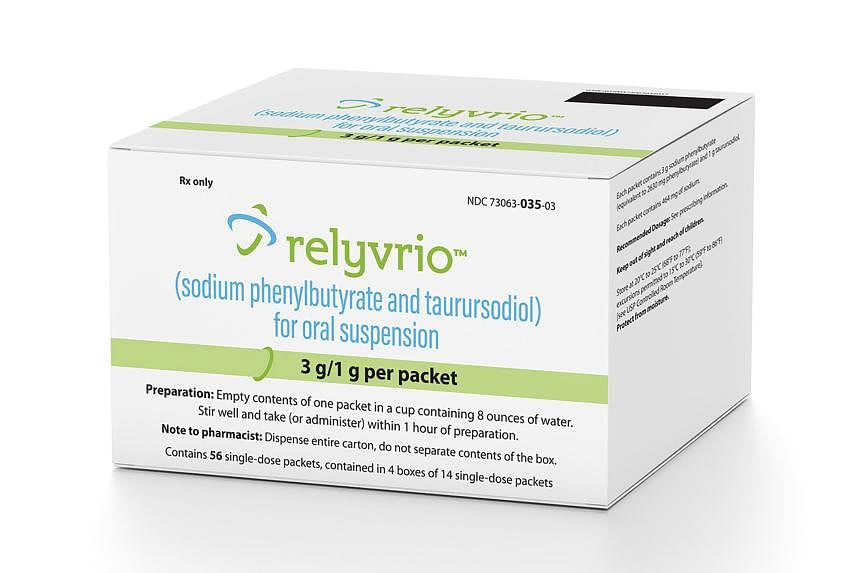WASHINGTON - Amylyx Pharmaceuticals announced on April 4 that it was withdrawing its approved treatment against the deadly neurodegenerative disease ALS, or amyotrophic lateral sclerosis, after clinical data found no evidence the drug worked.
In a statement, the US company said it would discontinue its market authorisations for Relyvrio/Albrioza, using the brand names of the medicine in the US and Canadian markets.
“While this is a difficult moment for the ALS community, we reached this path forward in partnership with the stakeholders who will be impacted and in line with our steadfast commitment to people living with ALS and other neurodegenerative diseases,” said the company’s co-CEOs Joshua Cohen and Justin Klee in a statement.
The company also said it was reducing its workforce “by approximately 70 per cent” as it focused on other drugs.
The news follows data from a clinical trial of 664 ALS patients announced in March, which found no significant differences in outcomes between those on the treatment group and those who received a placebo.
It was a big blow for patients with ALS, sometimes called Lou Gehrig’s disease after the famous baseball player, which devastates nerve cells in the brain and spinal cord.
ALS affects about two people per 100,000 every year, causing progressive loss of motor and cognitive function. Most patients die within five years of their diagnosis.
Relyvrio’s approval by the US Food and Drug Administration (FDA) in 2022 was controversial and based on the results of a single trial that involved just 137 participants.
The FDA itself noted there was “residual uncertainty about the evidence of effectiveness” but “given the serious and life-threatening nature of ALS and the substantial unmet need, this level of uncertainty is acceptable in this instance and consideration of these results in the context of regulatory flexibility is appropriate”.
Advocacy groups also mounted a major campaign sending a petition to the FDA with tens of thousands of signatures urging approval.
Once it became available, Amylyx reportedly announced an eye-watering list price of U$158,000 (S$213,000) per year in the US, drawing criticism.
Patient groups in Europe watched with desperation at the bureaucratic delays.
When the European Union drug watchdog later announced it was rejecting Relyvrio, the decision was slammed as “an affront” by angry French patients, who say they “don’t have time to wait”.
France later relented, offering conditional approval in November.
For now, there remain only a handful of treatments available.
Riluzole, which was approved by FDA in 1995, prolongs life by approximately three months.
Edaravone, which was approved by FDA in 2017, has been found to slow disease progression and improve survival.
In 2023, the regulatory approved Tofersen, a gene therapy treatment that targets those ALS cases that are caused by mutations in the SOD1 gene. - AFP

